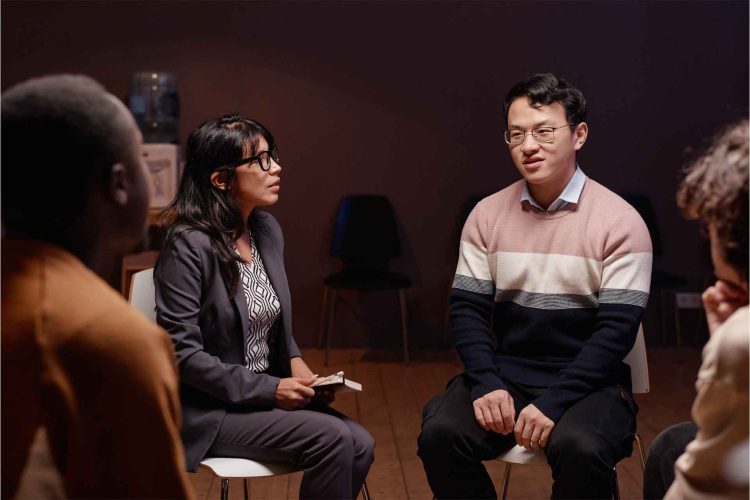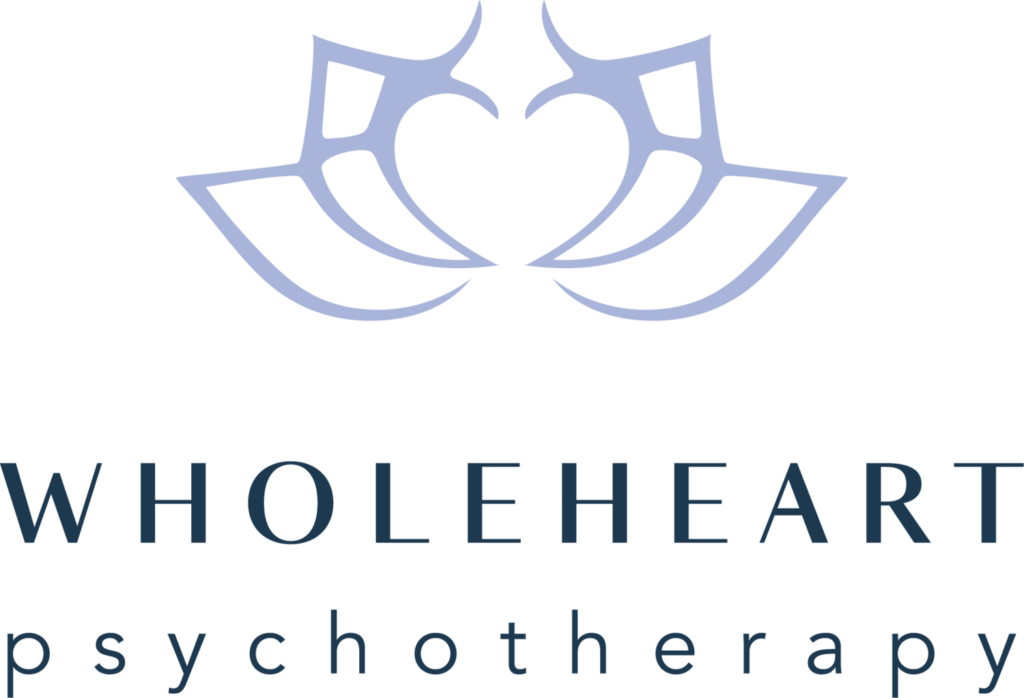Dialectical Behavior Therapy
(DBT)

What Is DBT Therapy?
Dialectical behavior therapy, or DBT, is a type of psychotherapy that teaches specific, highly efficacious skills to help people create a life worth living. In DBT, you learn, and utilize skills and strategies that are needed to change behavior and thought patterns that interfere with a satisfying life and emotional health.
How Do I Know Its Right For Me?
- Struggle with intense emotions?
- Have behaviors that you want to change?
- Do you use food and/or alcohol to cope?
- Do you have impulsive or reactive behaviors?
- Have you have trouble maintaining relationships?
- Would you like to create a life worth living?
IF YOU ANSWERED “YES” TO ANY OF THESE QUESTIONS, OR IF YOU HAVE OTHER CONCERNS ABOUT YOUR EMOTIONAL WELLBEING, THEN DBT MAY BE HELPFUL TO YOU.
Start The Healing Process
Learn More About DBT Group Therapy

What Is DBT Therapy?
Dialectical behavior therapy, or DBT, is a type of psychotherapy that teaches specific, highly efficacious skills to help people create a life worth living. In DBT, you learn, and utilize skills and strategies that are needed to change behavior and thought patterns that interfere with a satisfying life and emotional health.
How Do I Know Its Right For Me?
- Struggle with intense emotions?
- Have behaviors that you want to change?
- Do you use food and/or alcohol to cope?
- Do you have impulsive or reactive behaviors?
- Have you have trouble maintaining relationships?
- Would you like to create a life worth living?
IF YOU ANSWERED “YES” TO ANY OF THESE QUESTIONS, OR IF YOU HAVE OTHER CONCERNS ABOUT YOUR EMOTIONAL WELLBEING, THEN DBT MAY BE HELPFUL TO YOU.
Start The Healing Process
Additional DBT Information
What type of DBT do I need?
There are three types of DBT; DBT skills training group, individual DBT, and DBT skills coaching. Usually a combination of DBT skills training group and individual DBT or DBT skills coaching are suggested for the best outcomes. The actual DBT skills that are the foundation of the DBT practice are taught in a group setting. DBT is based on using the skills, so DBT group is an essential part of your DBT Treatment.
What is a DBT skills training group?
The group is a 24- week cycle that teaches all the DBT skills; mindfulness, emotion regulation, distress tolerance, and interpersonal effectiveness. Each group lasts 1.5 hours/ once a week and is structured beginning with Mindfulness (meditation), then Homework review is conducted to show how you are using your DBT skills to assess what is working and what isn’t working. Then, we teach the next skill, and Homework assigned for what to practice for the week.
What is individual DBT?
Individual DBT is used in conjunction with DBT skills training group to increase the level of care for clients with behavioral problems that significantly interfere with their quality of life. Individual DBT Therapy is highly structured and utilizes a diary card to efficiently target the most important behaviors to address in therapy. Clients discuss life threatening behaviors (When applicable); therapy interfering behaviors, and quality of life interfering behaviors all using a structured format of behavior chain analysis. This is a very highly effective behavior change therapy.
What is DBT skills coaching?
DBT skills coaching is used when clients need individualized intentional focus in applying and understanding the DBT skills that are being taught in the group. Clients may find that DBT group alone does not provide the level of support that they need to really change the behaviors they are identifying as problems. DBT skills coaching helps clients get highly individualized support in understanding DBT skills, how to apply them in their lives, and gives one-on-one outside of group support for skills integration. Skills coaching with the DBT skills training group is a highly effective and efficient way to change and create a life worth living.
4 Main Topics of DBT:
Mindfulness, Interpersonal Effectiveness, Distress Tolerance, & Emotion Regulation
What’s Involved?

Mindfulness
Methods for increased mindfulness include behaviors that strengthen the connections to our prefrontal cortex, making it easier to access the higher order thinking of the brain. Mindfulness activities can be yoga, meditation, guided imagery, breath work, tai chi, qi gong, mindful walks, etc.
- Practice of attention and intention
- Cultivating a compassionate, curious and non-judgmental relationship to self
- 3 states of mind: emotional mind, logical mind, and wise mind
- 3 “what” skills: observe, describe, participate to get more fully in each moment
- 3 “how” skills: non-judgmentally, effectively, and one-mindfully to be more open to change patterns

Interpersonal Effectiveness
Methods for increased mindfulness include behaviors that strengthen the connections to our prefrontal cortex, making it easier to access the higher order thinking of the brain. Mindfulness activities can be yoga, meditation, guided imagery, breath work, tai chi, qi gong, mindful walks, etc.
- Obtaining Objectives Skillfully- DEAR MAN GIVE FAST
- Objective effectiveness- getting what you want
- Relationship effectiveness- keeping the relationship
- Self- respect effectiveness
- Building Relationships and Ending Destructive Ones- Finding and getting people you like, Mindfulness of others, and Ending relationships.
- Walking the Middle Path- Balancing and accepting change in relationships- Effectively manage your relationships and yourself
Distress Tolerance Skills
Methods for increased mindfulness include behaviors that strengthen the connections to our prefrontal cortex, making it easier to access the higher order thinking of the brain. Mindfulness activities can be yoga, meditation, guided imagery, breath work, tai chi, qi gong, mindful walks, etc.
- Learn to tolerate and survive distress
- Accept life as it is in the moment without making it worse
- 2 Sets of skills
- Crisis Survival
- Reality Acceptance
- STOP Distracting
- Self- Soothing
- Improving the moment
- Focusing on pros and cons
- TIPP
- Radical Acceptance


Emotion Regulation
3 Goals of the emotion regulation skills training module are to:
- Understand and Name your Emotional Experience - What do emotions do?, What makes it hard to regulate emotions?
- Changing Emotional Responses- 3 steps - Check the Facts, Problem Solving, and Opposite Action
- Reducing Vulnerability to Emotion Mind - ABC Please
WholeHeart Psychotherapy
Feel free to contact us and ask us anything.
Live From Your Heart, Wholly And Authentically.
CEU Workshops
Workshops are longer sessions designed to help deliver a large amount of content in a short period of time. Oftentimes, workshops can last hours to days and are provided in a group format to deliver an intervention in a detailed and often experiential way.





Feedback:

Read More
Whole Heart Psychotherapy is an incredible practice of knowledgeable, compassionate, and ethical clinicians. As a therapist myself, it is important to establish relationships with other groups for networking, consultation, and collaborative purposes. I truly appreciate that I can trust the clinicians of Whole Heart to provide effective treatment to clients that I refer to their services. I also am grateful for the professional consultation and collaboration that is provided when working with shared cases or when seeking feedback. Whole Heart and its staff are always on my list of providers for outside referrals.

Read More
As a therapist, I feel very fortunate to have WholeHeart Psychotherapy as a resource. I have never once hesitated to refer to the practice, and have heard nothing but positive feedback from those I have referred. I have personally participated in professional consultation and DBT groups at Wholeheart over the the years, and can't speak highly enough of the experience.

Read More
Whole heart provides caring and helpful therapeutic support to their clients. As a therapist, I frequently refer clients to their practice as well as participate in supervision groups offered by their experienced supervisors.

Read More
i've loved my experience with my therapist at WH!

Read More
absolutely in love with whole heart. i've seen two therapists here and both have been the best. they're all so understanding, communicative, and helpful.
Previous
Next
WholeHeart Psychotherapy
Feel free to contact us and ask us anything.
Live From Your Heart, Wholly And Authentically.
CEU Workshops
Workshops are longer sessions designed to help deliver a large amount of content in a short period of time. Oftentimes, workshops can last hours to days and are provided in a group format to deliver an intervention in a detailed and often experiential way.





Feedback:

Read More
Whole Heart Psychotherapy is an incredible practice of knowledgeable, compassionate, and ethical clinicians. As a therapist myself, it is important to establish relationships with other groups for networking, consultation, and collaborative purposes. I truly appreciate that I can trust the clinicians of Whole Heart to provide effective treatment to clients that I refer to their services. I also am grateful for the professional consultation and collaboration that is provided when working with shared cases or when seeking feedback. Whole Heart and its staff are always on my list of providers for outside referrals.

Read More
As a therapist, I feel very fortunate to have WholeHeart Psychotherapy as a resource. I have never once hesitated to refer to the practice, and have heard nothing but positive feedback from those I have referred. I have personally participated in professional consultation and DBT groups at Wholeheart over the the years, and can't speak highly enough of the experience.

Read More
Whole heart provides caring and helpful therapeutic support to their clients. As a therapist, I frequently refer clients to their practice as well as participate in supervision groups offered by their experienced supervisors.

Read More
i've loved my experience with my therapist at WH!

Read More
absolutely in love with whole heart. i've seen two therapists here and both have been the best. they're all so understanding, communicative, and helpful.
Previous
Next

